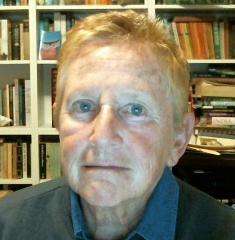Saul is generally considered one of Handel’s finest oratorios, and perhaps the most dramatic, with an almost perfect narrative arc, and music which excites, moves and suspends one in sheer beauty by turns. The FestspielOrchester Göttingen, combined with the NDR Choir under Laurence Cummings, has already set a seal on their combined mastery of Handel’s English (and German) oratorios with stunning performances of Esther, Susanna, Judas Maccabaeus and Brockes-Passion over the last four years. Saul continued this stream of wonders, with a flawless cast of vocal soloists.
The only drawback was the venue. The usual locale for oratorio performance in the International Handel Festival is the Göttingen Stadthalle, but it has been closed down due to the need for a full-scale refurbishment and is unlikely to reopen by next year’s festival either. This year, the oratorio was performed in the regional town of Hann [Hannoversch] Münden in the rather splendid St Blasius-Kirche, which holds considerably fewer people than the Stadthalle, and has it seems rather a reverberant acoustic for those towards the back of the nave. Some of the audience suffered also from limited sightlines.
From the start, Cummings and the FOG had the audience in the collective palm of their hands, beginning with a lively rendition of the opening Allegro. Every nuance of the symphony was exploited, and every instrument could be heard with limpid clarity. The opening ritornello of the first chorus, with the requisite three trombones, two trumpets and kettledrums, broke over the audience in an exuberant wave, soon joined by the NDR Chor, which has become, perhaps rather surprisingly, one of the great exponents of Handel’s English oratorios. The soprano aria was performed by Mary Bevan, who also portrayed the “nice” sister Michal, with cut glass soprano and exquisite diction and clarity. Her sister was portrayed by her actual sister Sophie Bevan, whose more florid soprano (on this occasion anyway) was appropriate to the haughty Merab, and her acting of the role was excellent, from sneering contempt of the upstart David, to gracious acceptance of him as a brother (in-law).
The title role was sung by German baritone Markus Brück, who has previously sung it in the celebrated Barrie Kosky production for Glyndebourne. Stripped of the theatrical trappings of that performance, Brück nonetheless conveyed with voice alone the encroaching dementia of the threatened king in fury and malevolence in “A serpent in my bosom warm’d”, but with subtle asides (“Oh, hardness to dissemble”), smugness (“Yes, he shall wed my daughter”) and finally despair in the encounter with Samuel. Jonathan has not quite the same range of emotional states to deal with, but Benjamin Hulett made the most of the role with ringing tenor, accurate articulation and commitment to the text. Eric Jurenas was a stunning David, with strong penetrating tone across his range and especially in the high notes, good flexibility, and judiciously deployed vibrato, not heard that often in countertenors, and great vocal expressiveness. In his second aria (“O, Lord, whose mercies numberless”) he seemed muffled in the middle of his range, although still delivering golden top notes, but this problem did not recur, and his reading of the text was always impressive. His duet with Michal (“O fairest of ten thousand fair”) was a delight with their voices blending beautifully and a lovely shared cadenza.
Another tenor, Raphael Höhn, played both the High Priest (all his text intact) and the Witch of Endor. His lightish voice was well deployed in the accompagnato (“By thee this universal frame”) with intensity and meaning and somewhat variable but not incomprehensible English diction, while the Witch was rendered in a nasal reedy falsetto. Members of the chorus carried off the minor roles of Abner (Keunhyung Lee), Doeg (Christoph Liebold), Samuel’s ghost (Fabian Kuhnen) and the Amalekite (Joachim Duske) with conviction.
Many bouquets must go to the FOG, as a consummate team, including many highly talented soloists, too numerous to name all individually. To the rock solid continuo group comprising as ever Phoebe Carrai (cello), David Tayler (theorbo) and Haneke Proosdij should be added organist Martina Fiedler, and mention must also be made of the versatile Proosdij’s turn on the famous carillon. Margret Kröll enchanted on the harp.
Orchestral highlights abounded, but the Dead March was riveting, attended to with total silence by the audience, and the final chorus with that last dying cadence set the seal on a performance nothing short of magnificence.




